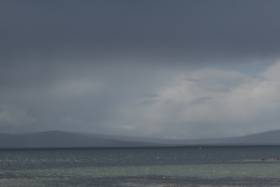Displaying items by tag: Marine Research Programme
Launch of Marine Institute Industry-Led Awards 2018
#MarineScience - The Industry-Led Awards 2018 under the Marine Research Programme has been launched by the Marine Institute.
The Industry-Led Awards funded by the Marine Institute will provide assistance for appropriate research activities that support the goals of Harnessing Our Ocean Wealth and are in the research themes identified in the National Marine R&I Strategy. The Industry-Led call is intended to address a need in the Irish SME sector for funding supports to participate in marine-related research.
The call is designed to provide funding for SMEs to raise the maturity levels for their research themes across these dimensions. The funding is aimed at supporting research and innovation costs for the development of innovative technologies, products and services from existing or new marine-based business. Collaboration with HEIs and other public research bodies is encouraged, but proposals must have an SME lead.
The amount of funding available will be a maximum award amount of €200,000. The total funding available in this call is €2 million. The project must be led by an SME or other commercial entity, academic partners can be involved. The consortium size is a maximum of three partners.
Applications must be made through the Marine Institute's online research grant management system (RIMS). Details on how to register on the system are available in the Guidelines for Applicants. Further information on the call are available in the Guidelines for Applicants and Terms of Reference.
Relevant Dates: Information Days
- Galway - Tuesday, 22nd May 2018
- Dublin - Wednesday 30th May 2018
- Cork - Tuesday, 12th June 2018
Closing Date: 16:00 Thursday 21st June 2018
Registration to attend at an Information Day or requests for further information/clarifications should be addressed to funding [at] marine [dot] ie. Responses to requests for further information/clarifications will be made available to all interested parties via this webpage. Requests for further information/clarifications must be received two weeks before the closing date. Information Days are subject to expressed interest from a minimum of 10 attendees per event.
This research call is funded by the Marine Institute under the Marine Research Programme and also co-funded under the European Regional Development Fund (ERDF) under priority 1 – Strengthening Research, Technology Development and Innovation.





























































